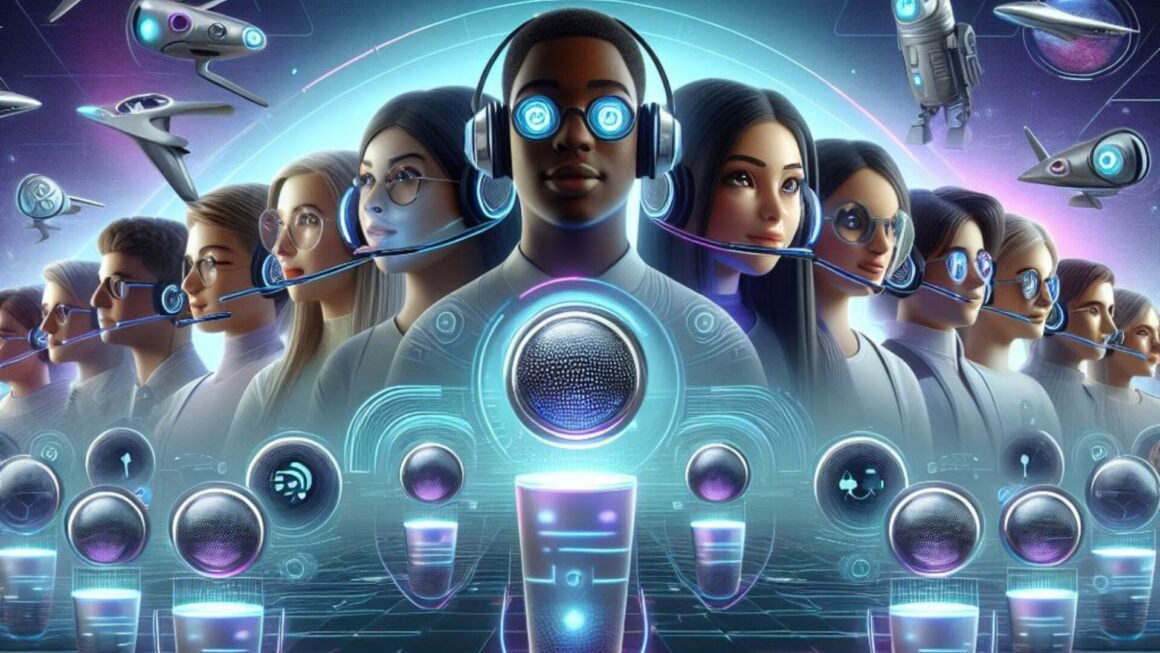Swift, Apple’s powerful programming language, has significantly influenced iOS development since its introduction. It’s a language that seamlessly blends simplicity with efficiency, making it an ideal choice for both novice and experienced developers. In this evolving digital landscape, Swift stands as a cornerstone in the iOS ecosystem, driving innovations and shaping the future of mobile app development.
Key Attributes of Swift:
- Performance: Swift is designed for speed. Its syntax and standard library are optimized for performance, ensuring that iOS apps run smoothly.
- Safety: With a strong focus on type safety and error handling, Swift minimizes programming errors, making the development process more reliable.
- Modern Syntax: Swift’s clean and expressive syntax simplifies complex concepts, making the code easier to read and write.
- Interoperability: It offers seamless integration with existing Objective-C code and libraries, which is crucial for evolving iOS apps.
Swift’s role in iOS development goes beyond just a programming language; it serves as a platform for innovation. With its robust features and user-friendly approach, Swift empowers developers to create complex, high-performing applications with ease.
Swift’s Impact on iOS App Development:
- Enhanced Productivity: Swift’s concise syntax and advanced features, like optionals and closures, streamline the development process, enabling developers to focus on creating feature-rich applications.
- Community and Support: As an open-source language, Swift benefits from a vast community of developers. This community contributes to a growing repository of resources, libraries, and tools, further enriching the iOS development ecosystem.
- Future-Ready: Regular updates and enhancements to Swift ensure it stays relevant, addressing the ever-evolving demands of modern iOS development.
AI Integration in Swift: A New Era for Developers
The integration of Artificial Intelligence (AI) into Swift marks a new era in iOS app development. With AI, Swift transcends traditional programming, offering developers tools and capabilities that were once unimaginable. This fusion of AI and Swift is not just an enhancement; it’s a revolution in the way iOS apps are developed, tested, and deployed.
AI’s role in Swift programming is multifaceted

Code Optimization: AI algorithms can analyze and optimize Swift code, making it more efficient and less prone to errors.
Predictive Coding: Tools powered by AI can predict a developer’s coding patterns, suggesting code snippets and auto-completing lines, thereby speeding up the development process.
Error Detection: AI can identify potential errors and offer solutions even before the code is executed, enhancing the reliability of the development process.
This integration benefits developers in several ways
- Increased Efficiency: By automating routine coding tasks, developers can focus on more complex aspects of app development.
- Enhanced Code Quality: AI’s predictive and analytical capabilities ensure a higher standard of coding, resulting in more robust and reliable apps.
- Learning and Adaptability: AI tools learn from each interaction, continuously improving and adapting to the developer’s style and preferences.
The impact of AI in Swift programming is profound. It opens up new possibilities in app development, from creating more intelligent and interactive applications to significantly reducing development time and costs. As AI continues to evolve, its integration with Swift is poised to redefine the standards of iOS app development, making it more efficient, effective, and innovative.
AI-Powered Tools and Libraries for Swift
The advancement in AI has led to the development of numerous tools and libraries specifically designed for Swift, enhancing the iOS development process significantly. These tools not only aid in code generation and automation but also provide unprecedented support in app development.

Examples of AI-Powered Tools for Swift
Code Autocomplete Systems: Leveraging AI, these systems suggest code snippets and auto-complete functions based on the developer’s coding patterns.
Code Analysis and Optimization Tools: AI-driven tools analyze Swift code for potential improvements and optimizations, ensuring better performance and reliability.
Error Detection and Correction Tools: Advanced AI algorithms detect potential errors in the code and suggest corrections, greatly reducing debugging time.
The integration of these AI-powered tools in Swift programming has several key benefits
- Streamlined Development Process: Developers can produce code faster and with fewer errors, thanks to AI’s predictive coding and error detection capabilities.
- Enhanced Code Quality: AI tools provide insights for code optimization, leading to more efficient and robust applications.
- Learning and Adapting: Many of these tools are designed to learn from the developer’s coding style, adapting to provide more personalized and relevant suggestions over time.
These tools are not just about automating routine tasks; they represent a significant leap in the way iOS apps are conceived and developed. By embracing these AI-powered tools and libraries, Swift developers are equipped to create more sophisticated, efficient, and user-centric applications.
Navigating Swift’s Evolving Syntax with AI
Swift’s dynamic nature, characterized by its evolving syntax and libraries, poses a challenge for developers. However, AI technologies have emerged as a pivotal tool in navigating these changes efficiently. AI’s capability to analyze and adapt to new patterns in Swift’s syntax and libraries significantly eases the learning curve for developers, both new and experienced.
AI aids in several ways
- Syntax Adaptation: AI models trained on the latest versions of Swift can help developers quickly adapt to syntax changes, providing real-time suggestions and corrections.
- Library Management: With the continuous addition of new libraries, AI can assist in identifying the most relevant and efficient ones for a particular project.
- Code Migration: For projects that need to be updated to newer Swift versions, AI can automate aspects of the code migration process, reducing manual effort and minimizing errors.
The impact of AI in managing Swift’s evolving ecosystem is profound. It not only simplifies the development process but also ensures that developers can keep up with the latest advancements without compromising on efficiency or quality. This aspect of AI integration is crucial in maintaining Swift’s relevance and usability in the fast-paced world of iOS app development.
Revolutionizing iOS App Development with Swift and AI
The combination of Swift and AI is not just enhancing the way iOS apps are developed; it’s revolutionizing the entire process. This fusion brings forth a new breed of applications that are smarter, more intuitive, and highly personalized.
Key areas where Swift and AI are making a significant impact include
- Personalization: AI algorithms can analyze user behavior and preferences, enabling Swift developers to create highly personalized app experiences.
- Automated Testing: AI-driven testing tools can simulate a wide range of user interactions, identifying bugs and usability issues more efficiently than traditional methods.
- Enhanced User Interfaces: With AI, Swift apps can offer dynamic user interfaces that adapt to user preferences and behaviors, providing a more engaging and intuitive user experience.
The revolutionary impact of integrating AI with Swift in iOS app development is clear. It opens doors to new possibilities, from creating more engaging and user-friendly apps to dramatically improving development efficiency. As AI continues to evolve, its synergy with Swift is expected to drive further innovations in iOS app development, setting new benchmarks for what mobile applications can achieve.
The Intersection of Machine Learning and Swift

Swift’s integration with machine learning (ML) through frameworks like Core ML and Create ML is reshaping iOS app development. These frameworks facilitate the incorporation of advanced ML features into Swift applications, making them more intelligent and responsive.
Advancements in Core ML and Create ML
- Core ML: Updates to Core ML have significantly improved model loading and inference speeds. The Async Prediction API and new optimization tools have made it easier to create interactive, ML-powered experiences tailored for Apple hardware.
- Create ML: This framework allows for the building of custom models using Apple’s latest visual feature extractors and transformer-based embeddings. Its ease of use and powerful capabilities have simplified the development of ML models for iOS apps.
Machine learning APIs have also evolved to offer sophisticated functionalities like advanced image segmentation and multilingual text understanding. These APIs empower Swift developers to create apps with innovative features such as animal body pose detection, 3D human body pose analysis, and enhanced speech recognition. The integration of machine learning into Swift underscores a significant step forward, enabling developers to harness the power of AI in creating more advanced and intuitive iOS applications.
Practical Steps: Integrating AI into Your Swift Projects
Integrating AI into Swift projects, specifically through the OpenAI API, offers a range of possibilities for enhancing iOS applications with natural language processing and other AI-powered functionalities. This process, while intricate, can be navigated with some key steps:
- Setting Up the Environment
- Ensure you have an OpenAI account and API key.
- Install the latest version of Xcode, Apple’s integrated development environment.
- Familiarize yourself with iOS app development using Swift.
- Incorporating the OpenAI API Client Library
- Use CocoaPods to install the OpenAI API Client Library.
- Create a Podfile in your project’s root directory and include the necessary dependencies.
- Implementing AI Features
- Once the OpenAI API is integrated, utilize its capabilities to process and analyze data. For example, parsing and understanding user inputs in a natural language format.
By following these steps, developers can effectively harness the power of AI within their Swift applications, opening up a myriad of opportunities for creating more intelligent and interactive apps. This integration not only enhances the app’s capabilities but also significantly improves the user experience.
Swift’s Adaptability: From Low-Level Programming to AI Applications
Swift’s design is a testament to its adaptability, from handling low-level programming tasks to powering complex AI applications. Originally developed as a multi-paradigm language, Swift incorporates best practices from both academia and industry. This makes it not only powerful and efficient but also suitable for a wide range of applications, including AI and machine learning.
The language’s focus on performance, safety, native deployment, clarity, and rapid evolution makes it an ideal choice for developers venturing into the realm of AI. By leveraging Swift, developers can easily integrate AI and machine learning functionalities into their applications, making them more intelligent and responsive. The ability to apply Swift in such diverse contexts illustrates its robustness and versatility in the ever-evolving field of software development.
Conclusion: The Future of Swift and AI in iOS Development
The integration of AI with Swift is not just a current trend but a significant step towards the future of iOS development. This combination has already begun to transform the way apps are conceived, designed, and implemented. As AI technology continues to advance, its synergy with Swift is expected to unlock even more possibilities, leading to more sophisticated, efficient, and user-centric iOS applications.
The future of Swift and AI in iOS development looks promising, with continuous improvements and innovations on the horizon. This partnership between a robust programming language and cutting-edge AI technology is set to redefine the standards of mobile app development, making it an exciting time for developers and users alike.




